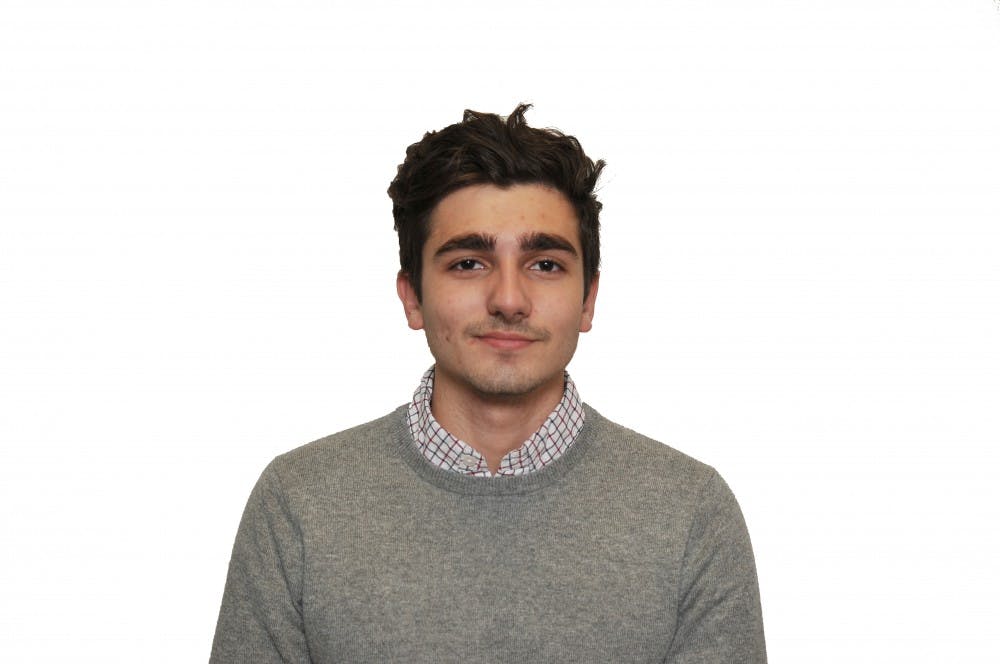Several weeks ago, Aziz Ansari’s new Netflix original series was released and, in typical Aziz fashion, the comedian brilliantly blurred the lines between outrageous humor and social commentary. It heavily reminded me of Ansari’s book “Modern Romance” that was released this year and tried to fully explain the world of relationships and social pressures surrounding romance that inhabit our society. In one of the most memorable scenes, Ansari asks millennials what the most daunting part of relationships is. The answer, quite simply, was the amount of options available to them. How can anyone know they’ve found “the one” when there are still so many “ones” out there?
But this doesn’t stop at just relationships. Yes, we live in an age in which you can research the girl you asked out on a date in seconds, find the best restaurant in minutes and learn all about the graduate schools you plan on applying to within an hour. But this instant access to information doesn’t have to be stressful or intimidating. We’ve been blessed with an endless amount of choices, but as soon as we make a choice, we need to be accountable for that choice and, quite simply, own it.
That’s not to say we shouldn’t regret choices we’ve made or change our mind on choices we’ve made. The problem is that we as a society are so focused on trying to pick what we think is the best that we oftentimes can’t feel a satisfaction with what we currently are doing or have chosen. This is analogous to the economic idea of opportunity cost. Everything we do has millions of alternatives and each one has an associated value, but once we have a greater understanding of the value of those opportunities, it might make us ask questions about whether what we are doing right now is really the best allocation of our time.
Barry Schwartz, a professor of psychology at Swarthmore University, discussed this issue in his 2004 book, “The Paradox of Choice,” and claimed that for every single option there are two groups: maximizers and satisficers. A maximizer will only settle for the best coffee, a five-star restaurant or the best university, while the satisficer is willing to sacrifice that effort and instead will settle for something that simply satisfies his or her need, such as picking the cheapest gasoline for his or her car.
Schwartz then decided to do a study with the help of two business school professors that looked at seniors in college applying to colleges, grouping the sample into the two groups of maximizers looking for the best-paying and most reputable job and satisficers looking for jobs that fit base requirements. While the maximizers had on average a 20 percent high paying starting salary than the satisficers, a while later the maximizers reported less satisfaction about these jobs while the satisficers were generally more positive about their jobs. What Schwartz claimed is that the maximizers essentially created a “fantasy job” that ultimately failed their expectations as it wasn’t the ideal they had intended it to be.
Where I differ with Schwartz is when he claims that we should either limit our options or lower our expectations. Obviously, limiting our options is tantamount to limiting our freedoms, which in turn limits our ways expression and stifles not just creativity but happiness and comfort among citizens. Schwartz seems right in saying that the expansion of options stresses us and makes us less satisfied with our choices, but lowering expectations as a society is detrimental to the society itself since barriers are mainly pushed when the bar is set higher than ever before; just look at the stories of practically every revolutionary invention ever made.
Therefore, what would best suit our environment is if we viewed our choices as vehicles that aren’t tied to the expectations we put on them. For instance, you may think that your job is boring and that even a high salary doesn’t make up for the mental (or perhaps physical) stress it causes you. But with a change of perspective, we can turn choices that we’ve made, which may seem inferior to the millions of others we could have made, and turn them into something not just beneficial to us, but also something we can primarily be satisfied with.
ALESSANDRO VAN DEN BRINK is a College sophomore from New York, studying economics. His email address is alevan@sas.upenn.edu. "Small Talk" appears every other Saturday.
The Daily Pennsylvanian is an independent, student-run newspaper. Please consider making a donation to support the coverage that shapes the University. Your generosity ensures a future of strong journalism at Penn.
DonatePlease note All comments are eligible for publication in The Daily Pennsylvanian.









